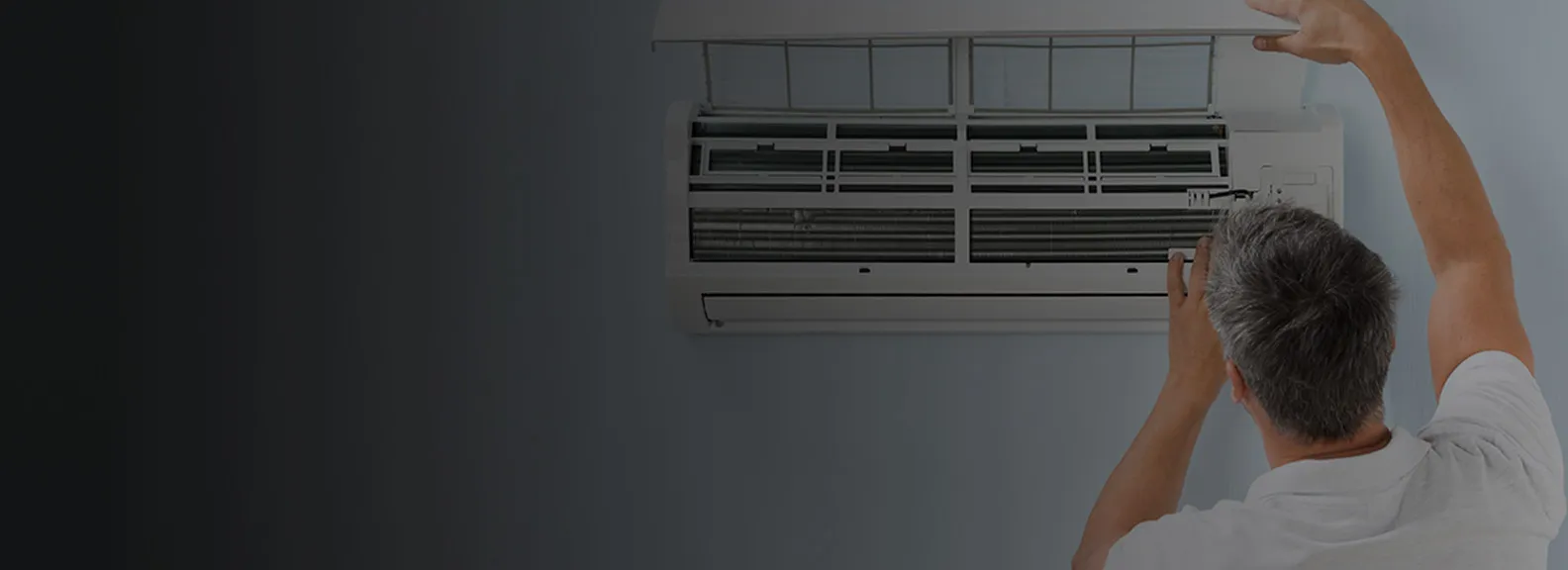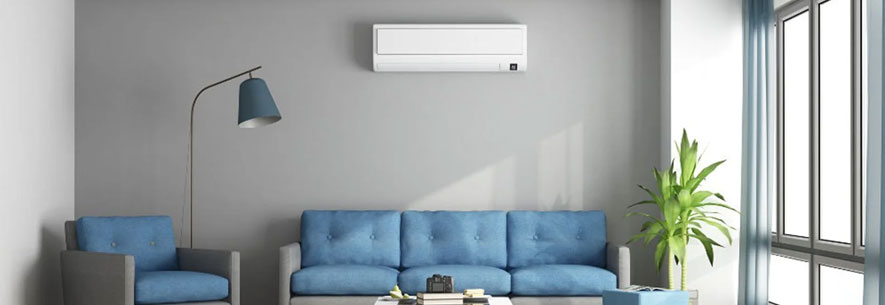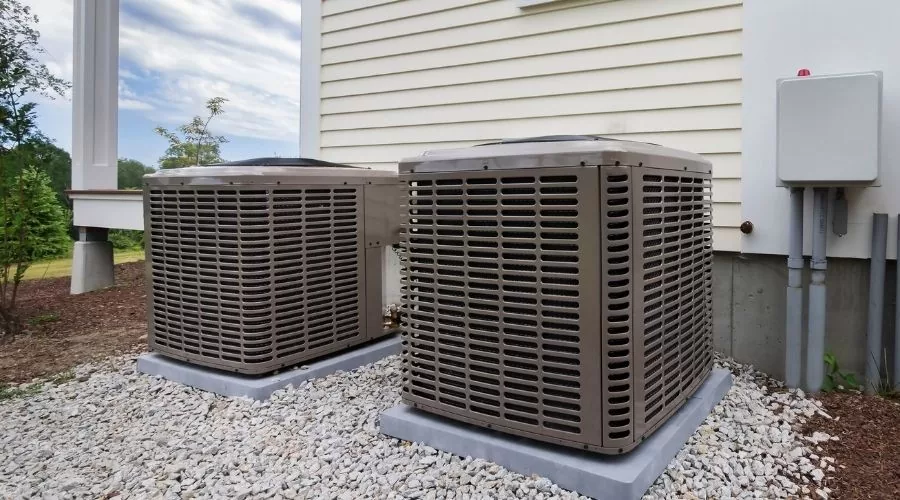Air conditioning systems have become an essential component of modern life, particularly in warmer climates.
They not only keep our homes comfortable during hot summers but also help maintain good indoor air quality.
Unfortunately, AC problems can arise with all types of systems, causing discomfort and potentially costly repairs.
In this article, we will discuss why AC systems experience issues and provide actionable tips for homeowners to prevent these problems.
Sunset Heating values the safety and comfort of all our clients. If your AC is not working as efficiently or if your indoor quality is experiencing a sudden decrease, you can rely on us for help.
Call (503) 500-5866 today to book an appointment.
Understanding AC Systems and How They Work
Air conditioning systems play a crucial role in maintaining a comfortable living environment, especially during the hot summer months. They help regulate indoor temperature, remove excess humidity, and improve overall air quality by filtering out pollutants and allergens.
An AC system utilizes a refrigerant, which is a chemical compound with the ability to absorb and release heat. As the refrigerant flows through the system, it absorbs heat from the indoor air, turns into a gas, and releases the heat outdoors.
Simultaneously, a fan circulates the cooled air throughout the space, providing a comfortable environment.
Types of AC Units
There are several types of AC systems, including central AC, ductless mini-split systems, and window units. While each system has its unique features, they all work through a similar process.
Let’s take a closer look at each type:
Central Air Conditioning Systems
Central AC systems are the most common type of air conditioning system found in homes.
They consist of an outdoor unit (which houses the compressor and condenser coil) and an indoor unit (which houses the evaporator coil and air handler).
These systems use ductwork to distribute cooled air throughout the entire house.
Central AC systems are ideal for larger homes or buildings, as they can efficiently cool multiple rooms simultaneously.
Ductless Mini-Split Systems
Ductless mini-split systems are becoming increasingly popular due to their energy efficiency and versatility.
These systems consist of an outdoor unit and one or more indoor units, which are connected by refrigerant lines.
Each indoor unit cools a specific area or zone, and the temperature can be individually controlled.
Ductless mini-split systems are an excellent option for homes without existing ductwork or for targeted cooling in specific rooms or areas.
Window Units
Window AC units are compact, self-contained systems that are installed in a window or through a hole in an exterior wall.
These units are ideal for cooling single rooms or small apartments and are relatively inexpensive compared to other AC system types.
Window units are a popular choice for renters or those looking for a budget-friendly cooling solution.
Portable Air Conditioners
Portable air conditioners are self-contained units that can be moved from room to room as needed.
They are designed to cool a single room and typically require venting through a window or sliding door using an exhaust hose.
Portable units are a convenient solution for those who need temporary or supplemental cooling, such as in a rental property or during a heatwave.
Why AC Systems Experience Problems
All types of AC systems can experience problems due to several factors, such as:
Reason 1: Wear and Tear
With regular use, various components of your AC system will experience wear and tear. Moving parts like fans, motors, and compressors are particularly prone to deterioration, which can lead to reduced efficiency and potential failure.
Reason 2: Age
As your AC system ages, its components are more likely to fail. It's important to consider that different types of AC systems have varying lifespans. For centralized AC systems, the average lifespan of an AC system is between 15-20 years. However, window-type ACs typically last around 10 years with proper maintenance and care, while ductless ACs have a longer lifespan, averaging around 20 years. Factors such as maintenance, climate, and usage patterns can influence the longevity of each type of AC system
Reason 3: Lack of Maintenance
Regular maintenance is essential for the optimal performance of your AC system. Neglecting it can result in dust and debris buildup, which can restrict airflow, reduce efficiency, and put extra strain on the system.
Reason 4: Improper Installation
Incorrectly installed AC systems can lead to a range of issues, including poor airflow, refrigerant leaks, and electrical problems. Always hire a reputable professional to install your AC system.
Preventing AC Problems: Tips for Homeowners
To keep your AC system running smoothly and prevent issues, consider the following steps:
Tip 1: Regular maintenance and inspections.
Schedule professional maintenance and inspections at least once a year, ideally before the cooling season begins.
A trained technician will clean and inspect your system, ensuring it's in good working order and identifying any potential issues before they escalate.
Tip 2: Clean or Replace Filters
Dirty filters can restrict airflow and decrease your system's efficiency. Check your filters monthly and clean or replace them as needed.
Central AC systems typically have one main filter, while ductless mini-split systems and window units have individual filters for each indoor unit.
Tip 3: Check for Refrigerant Leaks
A refrigerant leak can cause your AC system to lose its cooling ability and may even damage components.
Inspect your system for signs of refrigerant leaks, such as oil stains around the outdoor unit, ice buildup on the evaporator coil, or warm air blowing from the vents.
If you suspect a leak, call a professional technician to diagnose and repair the issue. Dial (503) 500-5866 today for immediate assistance!
Tip 4: Address Electrical Issues Promptly
Electrical problems can cause your AC system to malfunction or even become a fire hazard.
If you notice flickering lights, burning smells, or tripped circuit breakers, contact an electrician to inspect and repair any issues.
Tip 5: Keep Outdoor Units Clear of Debris
Regularly check your outdoor unit to ensure it is free of leaves, dirt, and other debris that can restrict airflow and reduce efficiency.
Make sure there is at least two feet of clearance around the unit for proper ventilation.
Tip 6: Insulate Your Home
Proper insulation helps maintain a consistent indoor temperature and reduces the workload on your AC system.
Check your attic, walls, and windows for sufficient insulation. Also, consider upgrading if necessary.
Tip 7: Use a Programmable Thermostat
A programmable thermostat allows you to set different temperatures for different times of the day, reducing energy consumption when you're away from home or asleep.
This can extend the life of your AC system and save you money on energy bills.
Identifying Signs of AC Problems
Being aware of the signs of AC problems can help you address them promptly and prevent further damage. These signs include:
Unusual Noises or Odors
Strange sounds, such as grinding or squealing, can indicate problems with the fan or motor. Musty or burning smells may indicate mold growth or electrical issues. Pay attention to any changes in the noises your AC system makes and address them promptly.
Reduced Airflow
If your AC system is not blowing air as forcefully as it used to, this could signal a problem with the fan, dirty filters, or blocked ducts. Regularly cleaning or replacing your filters and checking your ducts for blockages can help maintain proper airflow.
Uneven Cooling
If some rooms in your home are not as cool as others, this could be due to issues with the ductwork, insulation, or the AC unit itself. Check for drafts around windows and doors, and consider adding insulation or sealing gaps where necessary. If the problem persists, consult a professional for further assessment.
High Energy Bills
A sudden increase in your energy bill may indicate that your AC system is working harder than necessary, possibly due to dirty filters, refrigerant leaks, or other issues. Regular maintenance and addressing any problems early on can help keep your energy costs in check.
Frequent Cycling
If your AC system is turning on and off more frequently than normal, this could be a sign of an oversized unit, low refrigerant levels, or a malfunctioning thermostat. Frequent cycling can cause unnecessary wear and tear on your system and lead to higher energy bills. Consult a professional to diagnose the issue and recommend a solution.
Water Leaks
Water leaks around your indoor unit can indicate a clogged condensate drain line or a frozen evaporator coil. Regular maintenance can help prevent these issues, but if you notice water pooling around your unit, call a professional to address the problem.
Warm Air from Vents
If your AC system is blowing warm air, this could be a sign of a refrigerant leak, a dirty evaporator coil, or a malfunctioning compressor. Contact a professional technician to diagnose and repair the issue.
Addressing these issues promptly can prevent further damage to your AC system and save you money in the long run. Book an appointment with Sunset Heating today!
Keep Your AC System Running for Years to Come
AC problems can be a headache, but with regular maintenance, inspections, and attention to potential issues, you can keep your system running efficiently and avoid costly repairs.
Whether you have a central AC, ductless mini-split system, or window unit, these tips will help you stay cool and comfortable all summer long.
Stay vigilant for signs of AC problems, and don't hesitate to call a professional technician if you suspect any issues.
With proper care, your AC system can serve you well for many years to come.
Sunset Heating Is at Your Service!
Don't wait until your AC system breaks down! Take action today to prevent problems and keep your home comfortable all summer long.
Contact Sunset Heating at (503) 500-5866 for professional AC tune-up and repair services. Our team of experts will ensure your system is running efficiently and effectively, so you can enjoy a cool, comfortable home all season long.







